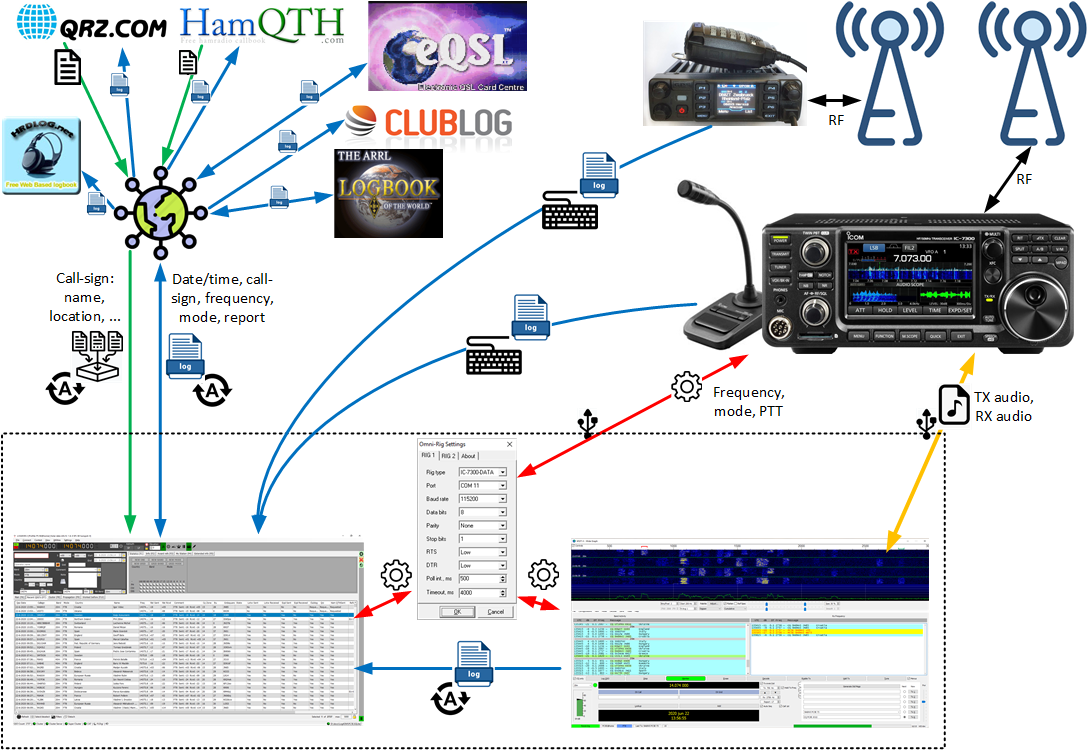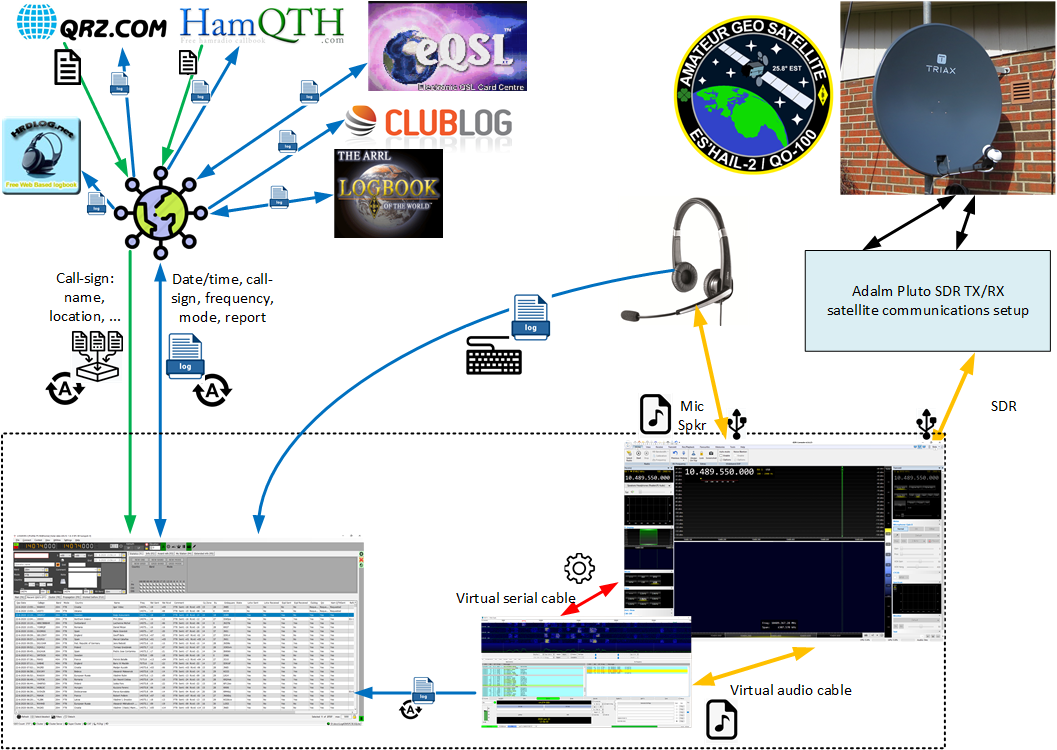Station setup and software
Below you find a visualized setup of my station:

I use Log4OM v2 for logging. It pulls info on callsigns from different scources and automagically logs QSO's to a lot of logbooks. Only LotW needs manual logging, since it does not support single QSO logging. And I need to manually poll for QSL confirmation from eQSL and LotW.
I use OmniRig to do CAT from Log4OM and WSJT-X simultaneously. Both programs can do CAT, so changing frequencies in WSJT-X changes the frequency on my IC7300 and Log4OM. That way logging will use the correct frequency.
For FT8, FT4 and other digimodes I use WSJT-X. Works like a charm. ;) Logging is automatically.
Logging voice QSO's is manual, but since I use CAT control for my IC7300 I do not need to enter frequency/mode for those QSO's, the call is all I need to enter manually. For VHF/UHF/DMR I have no CAT control, so logging those QSO's is manual all the way.

My QO-100 setup is similar to my HF/VHF/UHF setup, but I use SDR Console for working QO-100. When I want to use digimodes I use a virtual audio cable and virtual serial cable to interface WSJT-X and SDR Console. Logging gigimodes is automatic, but I do need to set the frequency and mode by hand. OmniRig has one disadvantage: it cannot use frequencies above 2.4GHz, so I cannot do CAT with SDR Console. Voice QSO's are full manual entry.






